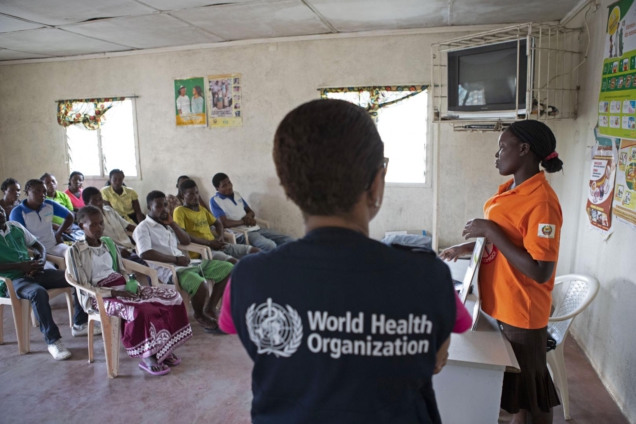The World Health Organization (WHO) has held a four-day sustainability planning and business case development workshop for its partners to enhance mental health programmes in Ghana.
The workshop, held in Kumasi in the Ashanti Region aimed at building the foundational knowledge and expertise of the regions to effectively pursue, secure and manage strategic partnerships for sustainable and impactful health programmes.
A statement issued by the WHO Country Office and copied to the Ghana News Agency (GNA) said mental health remained a challenge in Ghana, with 2.3 million people living with the condition and a 98 per cent treatment gap.
Ghana has been implementing the Director General’s Special Initiative for Mental Health (DG-SIMH) since 2022 in four regions to address the gaps and strengthen the standard of mental health and well-being.
The five-year initiative supported by the Government of Norway and USAID seeks to get 100 million more people to access quality and affordable mental health services in 12 countries around the world, including Ghana.
It said the WHO was enhancing the capacity of the implementing regions and partners to ensure the sustainability of the initiative and other inventions even after the implementation period.
“Through the WHO Special Initiative for Mental Health, Ghana has stepped up efforts to improve mental health care.
"So now we are working to ensure that the significant effort being made is sustained beyond the lifespan of the initiative,” says Dr Joana Ansong, the Noncommunicable Diseases & Risk Factors Officer at WHO Ghana.
The Deputy Director for Mental Health at the Ghana Health Service, Dr Amma Boadu lauded the foresight of WHO in seeking to enhance capacity for sustainable programming and pledged the service’s commitment to leverage the new skills to sustain health programmes at all levels.
“This capacity will help us to address gaps in our efforts to sustain mental health programmes and other health interventions, especially at the subnational level where resources are very constrained,” Dr Boadu noted.
Participants described the workshop as timely and insightful as they were empowered with the requisite technical competence to build strong business cases for sustainable health interventions.
“This is the first time we are participating in this kind of workshop. We are ready to leverage the skills to not only mental health programmes but all other health interventions,” says Mr Edward Owusu, the Savannah Regional Mental Health Coordinator.
The four-day workshop saw participants taking through partnerships, resource mobilization and advocacy to strengthen their capacity to sustain their health programmes.
Latest Stories
-
FIFA Club World Cup 2025: Sundowns, Esperance join Al Ahly and Wydad as CAF representatives
2 hours -
CAFCL: Al Ahly set up historic final with ES Tunis
3 hours -
We didn’t sneak out 10 BVDs; they were auctioned as obsolete equipment – EC
7 hours -
King Charles to resume public duties after progress in cancer treatment
7 hours -
Arda Guler scores on first start in La Liga as Madrid beat Real Sociedad
7 hours -
Fatawu Issahaku’s Leicester City secures Premier League promotion after Leeds defeat
7 hours -
Anticipation builds as Junior Speller hosts nationwide auditions
8 hours -
Etse Sikanku: The driver’s mate conundrum
9 hours -
IMF Deputy Chief worried large chunk of Eurobonds is used to service debt
9 hours -
Otumfuo Osei Tutu II celebrates 25 years of peaceful rule on golden stool
9 hours -
We have enough funds to pay accruing benefits; we’ve never missed pension payments since 1991 – SSNIT
9 hours -
Let’s embrace shared vision and propel National Banking College – First Deputy Governor
10 hours -
Liverpool agree compensation deal with Feyenoord for Slot
10 hours -
Ejisu by-election: There’s no evidence of NPP engaging in vote-buying – Ahiagbah
10 hours -
Ejisu by-election: Independent ex-NPP MP’s campaign team warns party against dubious tactics
10 hours

